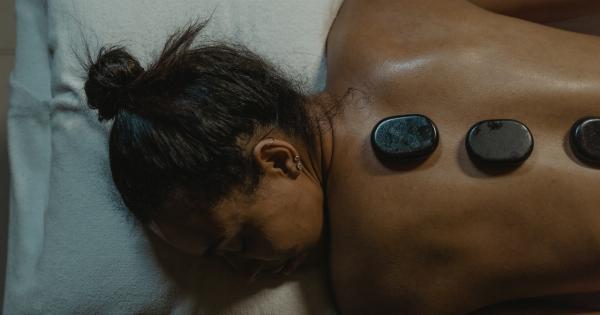Kidney stones, also known as renal calculi, are hard deposits made of minerals and salts that form inside the kidneys.
These stones can be as tiny as a grain of sand or as big as a golf ball, and can cause excruciating pain as they pass through the urinary tract. The pain typically originates in the back or the side, below the ribs, and can radiate to the lower abdomen and groin.
Understanding the causes
Kidney stones are composed of various substances, including calcium, oxalate, uric acid, and cystine. There are several factors that contribute to the formation of these stones:.
- Diet: Consuming foods high in oxalate, such as spinach, chocolate, and nuts, can increase the risk of developing kidney stones. Additionally, consuming excessive amounts of salt, protein, and sugar can also contribute to stone formation.
- Dehydration: Insufficient water intake leads to concentrated urine, which can result in the formation of crystals that develop into kidney stones over time.
- Family history: If you have a family member who has had kidney stones, you are at a higher risk of developing them as well.
- Medical conditions: Certain medical conditions, such as urinary tract infections, gout, and digestive disorders, can increase the likelihood of kidney stone formation.
Relieving the pain
The pain caused by kidney stones can be unbearable, often requiring immediate relief. Here are some common methods used to alleviate the agony:.
1. Drinking plenty of water
One of the most effective ways to relieve kidney stone pain is to drink plenty of water. Hydration helps to flush out the stones and encourages them to pass through the urinary tract. Aim to drink at least 2-3 liters of water per day.
Additionally, certain citrus fruits like lemons and oranges can aid in breaking down kidney stones.
2. Taking over-the-counter pain relievers
Non-prescription pain medications, such as ibuprofen or acetaminophen, can help alleviate the discomfort.
Be sure to follow the recommended dosage instructions and consult with a healthcare professional if you have any underlying medical conditions or are taking other medications.
3. Applying heat
Applying a heating pad or hot water bottle to the affected area can provide temporary relief from kidney stone pain. The heat helps to relax the muscles and alleviate the spasms caused by the stones.
4. Trying herbal remedies
Some herbal remedies, such as chanca piedra and hydrangea root, have been traditionally used to promote kidney health and break down kidney stones.
However, it is essential to consult with a medical professional before trying any herbal remedies, as they may interact with other medications or have potential side effects.
5. Taking prescribed medications
In certain cases, healthcare professionals may prescribe medications to help manage kidney stone pain. These may include alpha blockers, which relax the muscles in the ureter, or medications to prevent the further formation of stones.
6. Sound wave therapy
Extracorporeal Shock Wave Lithotripsy (ESWL) is a non-invasive procedure that uses sound waves to break large kidney stones into smaller fragments, making it easier for them to pass through the urinary tract.
This procedure is typically performed under sedation and may require multiple sessions.
7. Surgical intervention
If the kidney stones are large and causing severe pain or obstruction, surgical intervention may be necessary. The most common procedures include percutaneous nephrolithotomy, ureteroscopy, and nephrolithotripsy.
Preventing future occurrences
Once you have experienced the pain of kidney stones, you’ll likely want to prevent their reoccurrence. Here are some strategies:.
- Hydrate: Drink an adequate amount of water throughout the day to keep your urine diluted and prevent the concentration of substances that form kidney stones.
- Watch your diet: Limit the consumption of foods high in oxalate, sodium, and sugar. Instead, incorporate more fruits, vegetables, and whole grains into your diet.
- Manage underlying conditions: If you have certain medical conditions, such as urinary tract infections or digestive disorders, seek proper treatment and follow medical advice to reduce the risk of kidney stone formation.
- Stay active: Regular physical activity can help maintain overall health and decrease the risk of kidney stones.
While preventing kidney stone formation is not always possible, adopting these lifestyle changes can significantly reduce the likelihood of experiencing the pain associated with them.






























